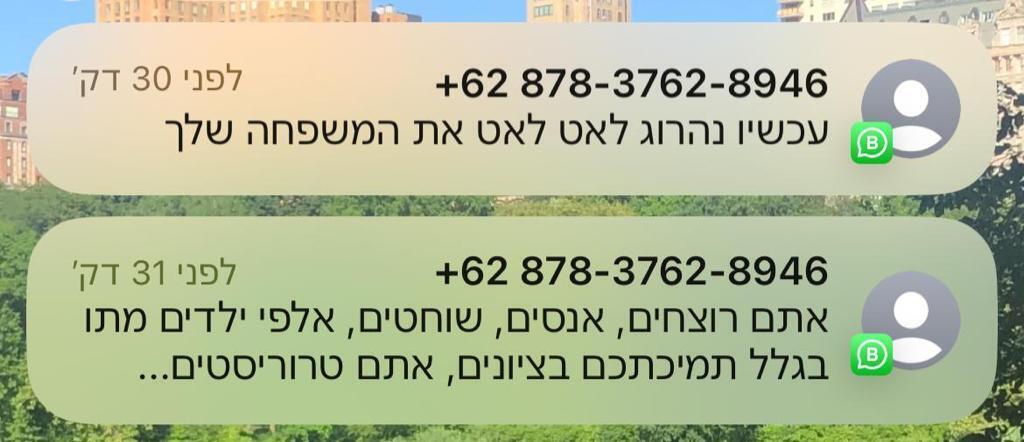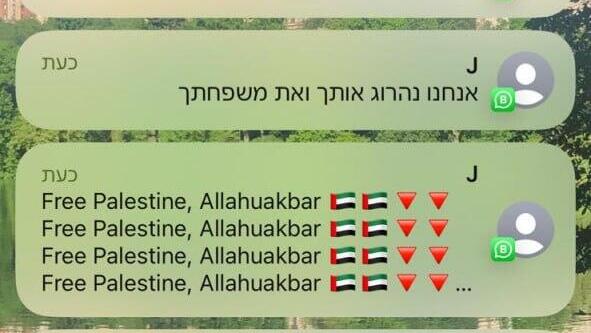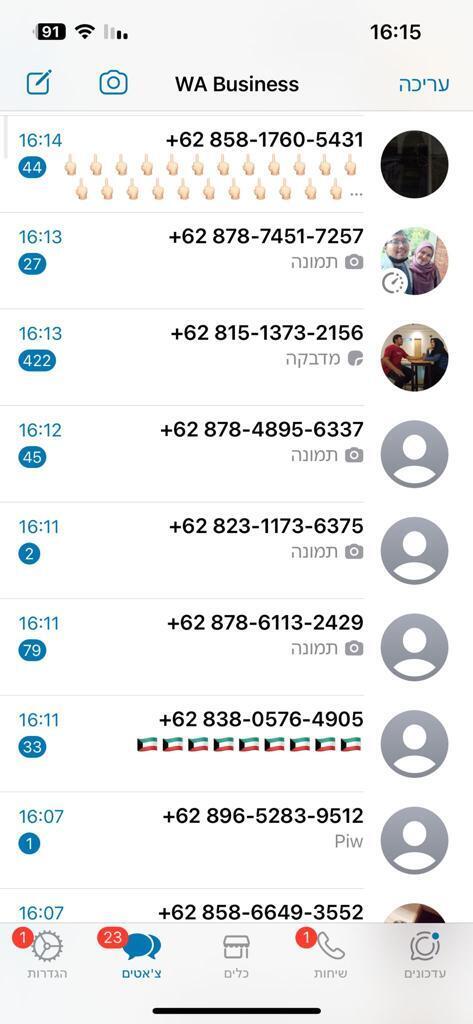In recent days, government ministers and senior speakers have faced a barrage of attacks from hackers and pro-Palestinian activists. They have been targeted with thousands of phone calls, WhatsApp messages, SMS, and messages on social media accounts. These messages often contain curses, slurs, and threatening language, such as "we will kill you and your family," "Alla-hu Akbar," "free Palestine," and even harsher expressions. Additionally, there have been thousands of WhatsApp, voice, and video calls, as well as the use of rude emojis.
Read more:
The onslaught of attacks has rendered mobile phones inoperable, leading many of the targeted individuals to power off their devices. The calls predominantly originated from the prefix +62, which is Indonesia's international prefix. This pattern suggests that the attacks are not the work of private individuals but rather a well-organized operation. One of the speakers recounted that upon answering one of the calls, he was met with curses and shouts demanding the liberation of Palestine.
Eylon Levy, the National Advocacy spokesperson, has unfortunately found himself targeted in one of these attacks. Since the outbreak of the war and his involvement in the national advocacy system, Levy has gained significant recognition worldwide. Videos showcasing Levy engaging in eloquent discussions with interviewers on foreign networks have been widely circulated. Among these, the most notable video captures Levy's incredulous expression as a Sky News presenter questions whether Israel undervalues Palestinian lives by releasing three Palestinian prisoners for every Israeli hostage.
Nevertheless, the acclaim and success Eylon Levy has achieved come with a substantial cost. In recent times, Levy experienced a widespread onslaught of criticism from various corners of the globe, as his social media accounts were inundated with an overwhelming number of messages. The scale of this attack was so immense that his Instagram account was ultimately disabled due to the influx of tens of thousands of messages. Furthermore, Levy's WhatsApp account was bombarded with an overwhelming volume of messages and phone calls originating from numbers bearing an Indonesian prefix.
The National Advocacy Service reached out to the National Cyber Array for assistance and received instructions on enhancing the security of all applications and social networks. Consequently, Levy's Instagram account has been reinstated. However, in order to mitigate the ongoing barrage of WhatsApp calls, Levy had to temporarily disable his mobile phone. It has been reported that speakers who filed complaints regarding the attacks were advised to change their phone numbers, but all of them declined the recommendation and are compelled to endure the continuous onslaught.
The targeted senior speakers expressed their frustration over the situation, stating that their mobile phones have essentially become incapacitated due to the incessant influx of messages and notifications. They described the experience as a nightmare and expressed disappointment in the government's inability to effectively protect against such incidents. Some of the speakers conveyed their discontent to Ynet, mentioning that they were simply advised to change their numbers, which they deemed an insufficient solution.
Over the past two months, a series of numerous cyber attacks targeting Israeli websites, services, and applications has resulted in the online leakage of phone numbers and personal information belonging to many Israelis.
In a concerning development, the hackers have been sharing the pilfered databases on various online forums, accompanied by explicit encouragement for web users from countries like Indonesia, Pakistan, Bangladesh, and other pro-Palestinian nations to exploit this information against Israelis. Presently, the campaign has become more targeted, with the hackers specifically identifying phone numbers associated with high-ranking public figures such as senior speakers, government officials, ministers, and members of the Knesset. Once identified, the hackers employ the same method of attack but focus on a single phone number.
3 View gallery


A message that accuses Israel of being terrorists, murderers and rapists
(Photo: WhatsApp screenshot)
In light of these alarming events, efforts were made to contact Meta, the operator of the WhatsApp application, for a response. However, at the time of publishing this article, no response had been received.




